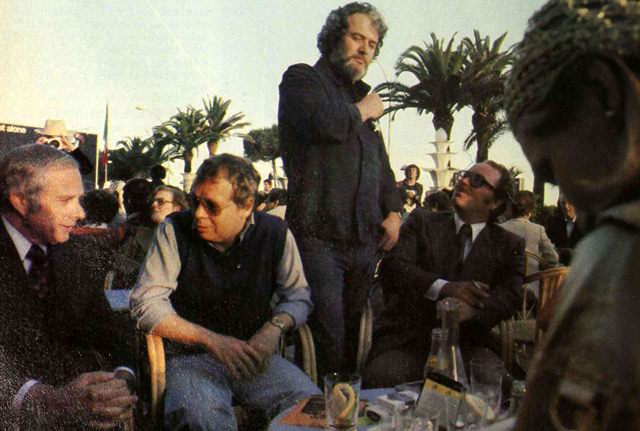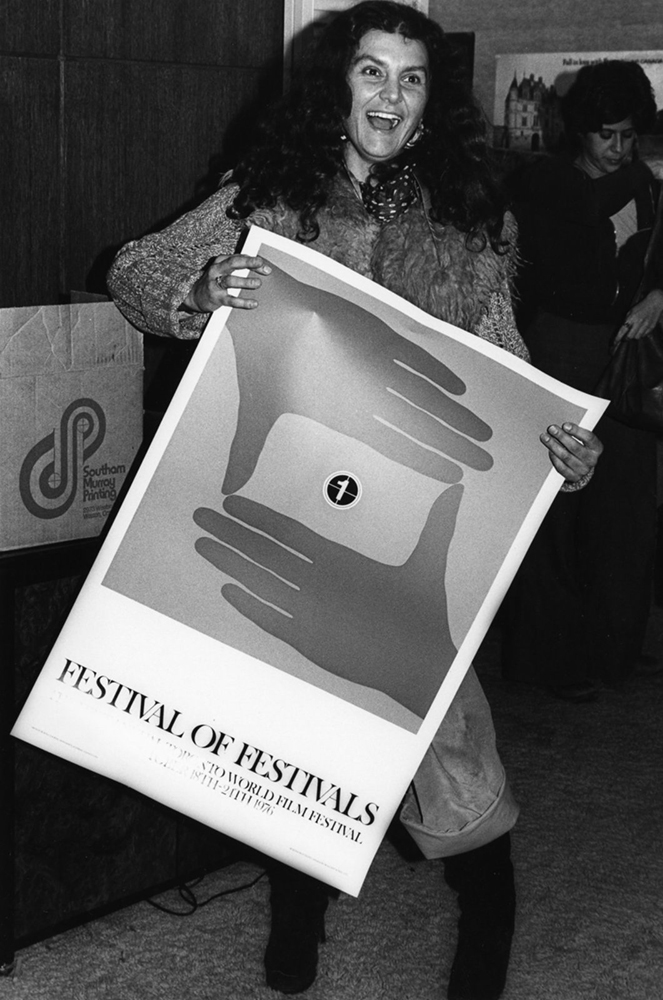By Adriana Fiorante
The Breadwinner (2017) is an animated co-production between Canada, Ireland and Luxembourg about a young girl, Parvana (Saara Chaudry), surviving the Taliban’s seizing of her hometown, Kabul. In the plot, Taliban soldiers Idrees (Noorin Gulamgaus) and Razaq (Kawa Ada) take Parvana’s father (Ali Badshah) to prison for committing the crime of keeping forbidden books in his home and teaching women to read. The main focus of this film is the lack of rights Afghani women have under the Taliban rule. To combat the restrictions imposed on women and girls, Parvana cuts all her hair off to make herself look like a boy so she can buy food, get water, and work so her family can survive. She meets Shauzia (Soma Chhaya), another girl who is acting under the same disguise.
Feature image courtesy of thebreadwinnermovie via Instagram
Hearing the plotline, you might think The Breadwinner is similar to other animated coming-of-age films based in a war-torn Islamic country, such as Osama, Persepolis, Waltz with Bashir, or The Kite Runner. But while these films show vibrancy, detail, developed characters, and rich plotlines, The Breadwinner falls short on most of these aspects.
Overall, despite its high praise - three Canadian Screen Awards, a European Film Award, and an Oscar nod - I was disappointed. From the beginning, any threat of danger seems more like a plot device than something that instigates or motivates the characters’ arcs, as Parvana’s entire family is almost unbothered by the Taliban men wielding machine guns that surround them. At one point, Parvana’s father speaks back to a Taliban member who is armed with a gun, her mother later argues with one of them, and Shauzia and Parvana both run around the streets of their town, treating it more as a playground than a war zone. The film almost trivializes the Taliban rule to create a family-friendly film.
Some may argue that the character’s lack of fear is because the characters are all very brave, but in my opinion, it seems implausible that they would all be so unfazed by violence and willing to test their luck in front of trigger-happy extremists. For me, it felt more like there was no real threat of violence and that the soldiers were just there to show the audience that life in Afghanistan under Taliban rule is rough. Not only does nobody seem to actually worry about those keeping them from freedom, but no character suffers a fatal punishment; displaying the unrealistic idea that the Taliban members use their gun as a prop more than a tool for cruelty and oppression.
Deborah Ellis, the author of The Breadwinner novel stated in an interview with CBC news that Parvana “[is] a girl who is not at all interested in being heroic or strong or brave or anything ... But she rises to the circumstances that life throws at her.” To me, this seems like Ellis is defending herself from any criticisms of creating a one-dimensional character that has no real objectives or drive. Parvana is apparently uninterested by bravery and strength, and yet those are two fundamental themes throughout the novel and the film. What I believe Ellis and the rest of the creators of this film fail to notice is that for a woman or girl to survive in extremist areas of the globe; they cannot have a devil-may-care attitude. Women and girls of Afghanistan under Taliban-rule were forced to wear a burqa while in public at all times, were not allowed to work and were not allowed to pursue an education past the age of eight, or they face being lashed or hurt.
For the most part, the film lazily pushes through the motions of storytelling without any real passion or much attention to detail. For instance, Parvana mentions she has a brother who passed away, but his life and death is relayed in very limited detail, despite the evident fact that it affected Parvana and her family significantly. This could have been elaborated.
Additionally, the film is incomplete in its character building. Parvana’s father is one-dimensional and seemingly used as nothing but a plot device to give Parvana an objective throughout the movie. Parvana’s sister Soraya has virtually no characteristics besides fulfilling the stereotypical older sister trope - as she consistently nags Parvana and is concerned with nothing but her appearance - and being an object that her mother can arrange into a marriage.
The Breadwinner follows parallel plotlines; the second being the story of the Elephant King, a folk tale Parvana relays to her friends and family. The plotline of the Elephant King weaves together and mirrors the plotline of the primary story. It is about a young boy whose village is victim to theft by a gang of tigers who steal their crops and seeds produced in an otherwise successful farming season. The villagers will starve the following year if they do not have the seeds, and so the young boy journeys out to defeat the gang and their leader, the Elephant King, to claim their seeds back. Although the Elephant King story is a substantial part of the film that is meant to mirror the reality of Parvana’s life and act as a means of entertainment to distract those around her from their reality, it is abruptly brought up at random and inconvenient times that don’t really highlight how the plotlines are mirrored, though it sloppily attempts to do so.
Photo courtesy of thebreadwinnermovie via Instagram
On top of all of this, the climax of the film occurs abruptly with no precursor or tension building apart from Taliban soldiers shouting in the streets that a war has started, just in time to save Parvana from certain death. The film does little to explain who is fighting against who and why they are doing so, relying on the audience to already know the details behind the Afghanistan War.
However, this lack of detail makes sense, as the majority of the film’s creators are not of South-Asian descent. Nora Twomey, a white, Irish woman directed the film. The screenwriter, Anita Doron, is a white, Hungarian Canadian woman. The producers are four white men, two of which, Andrew Rosen and Anthony Leo, are Canadians. The entire cast is South Asian Canadians, with three members being Afghan. While it is accurate and admirable to cast South Asians in a movie set in South Asia about South Asians, having virtually no inclusion of these voices behind the scenes seems to work against the film’s ability to accurately relay the complexities of Taliban-run Afghanistan.
The overwhelming aspect that reveals how inadequate and ill-equipped the filmmakers were at doing justice to this story is the terrible accents performed by most of the cast. Ada, a very practiced Afghan Canadian actor, doubled as the dialect coach for the film. Still, much of the cast sounded more like a non-native speaker’s idea of what an Arabic accent should be rather than a native Dari or Pashto speaker.
The animation, however, salvages some respectability for the film, as it is lively and expertly uses bright reds, greens and blues when Parvana is telling the story of the Elephant King, and dull yellows, browns and blacks when she is in Kabul, showing the stark contrast between her dream life and reality. The animation was done in part in Canada’s Guru Studio, The Breadwinner being the company’s first feature film.
While The Breadwinner is beautifully animated with creative aspects, it is hard to get past the uneven plot, rushed ending, and weak details. It is even harder to relate to a character’s struggle when they are given little to no attributes, as sympathetic as their plights are.
Video courtesy Movieclips Indie via YouTube














 By: Urbi Khan
By: Urbi Khan




